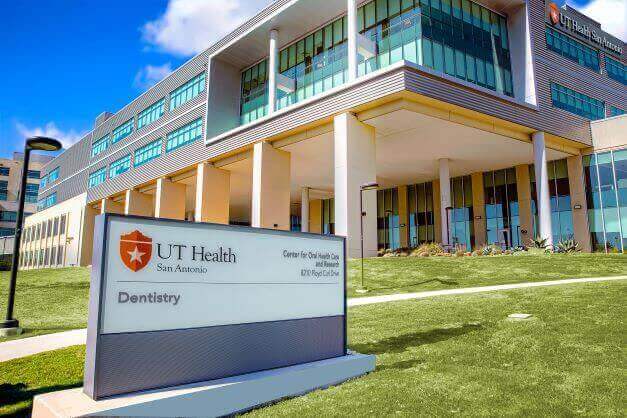UT Dentistry, the dental practice of the UT Health San Antonio School of Dentistry, recently received $100,000 from the Leukemia and Lymphoma Society to provide necessary care to local veterans without dental benefits who are undergoing treatment for blood cancers.
Veterans face challenges from exposures to hazardous substances they encountered during their military service, which are believed to contribute to more than 4,000 new diagnoses of hematologic malignancies annually.
But treatments for these cancers can carry risks for oral health complications.

“Dental procedures that are required before, during or after cancer treatment may not be covered by health insurance plans, adding to the financial burden on patients,” said Micaela Gibbs, DDS, MHA, UT Dentistry chief dental officer. “This can adversely affect not only the cancer patient’s dental health but also their overall well-being and quality of life, as oral complications can impede cancer treatment outcomes.”
Advances in the treatment of blood cancers, such as targeted cell therapy, chemotherapy, bone marrow transplants and radiation therapy, have greatly improved survival rates.
Yet, oral complications affect about one-third of patients receiving treatment for cancer, including infections, inflammation of the mucus membranes, dry mouth, temporomandibular joint spasms and drug-induced osteoradionecrosis of the jaw, a severe condition involving painful bone loss.
UT Dentistry is at the ready to assist veterans with poor dental health who are preparing to undergo cancer treatment and have exhausted their dental benefits. The practice is equipped with a comprehensive range of dental specialties from endodontics to prosthodontics to provide coordinated care with Veterans Affairs partners.
“Improving a patient’s baseline dental health before treatment significantly reduces known risk factors for oral complications resulting from radiation and chemotherapy,” Gibbs said.
Each veteran’s health care team of physicians and dentists will determine funding on a case-by-case basis by identifying available resources, urgency of need and potential impact on disease outcomes. Funding will exclusively support critical-need procedures before, during and after cancer treatment.
“Supporting veterans’ oral health is crucial for their overall well-being,” Gibbs said. “UT Dentistry is proud to ensure veterans receive the necessary dental care to enhance their quality of life and face these challenging diseases.”
For more information, call 210-450-3700 to be connected with the Office of Patient Care.



